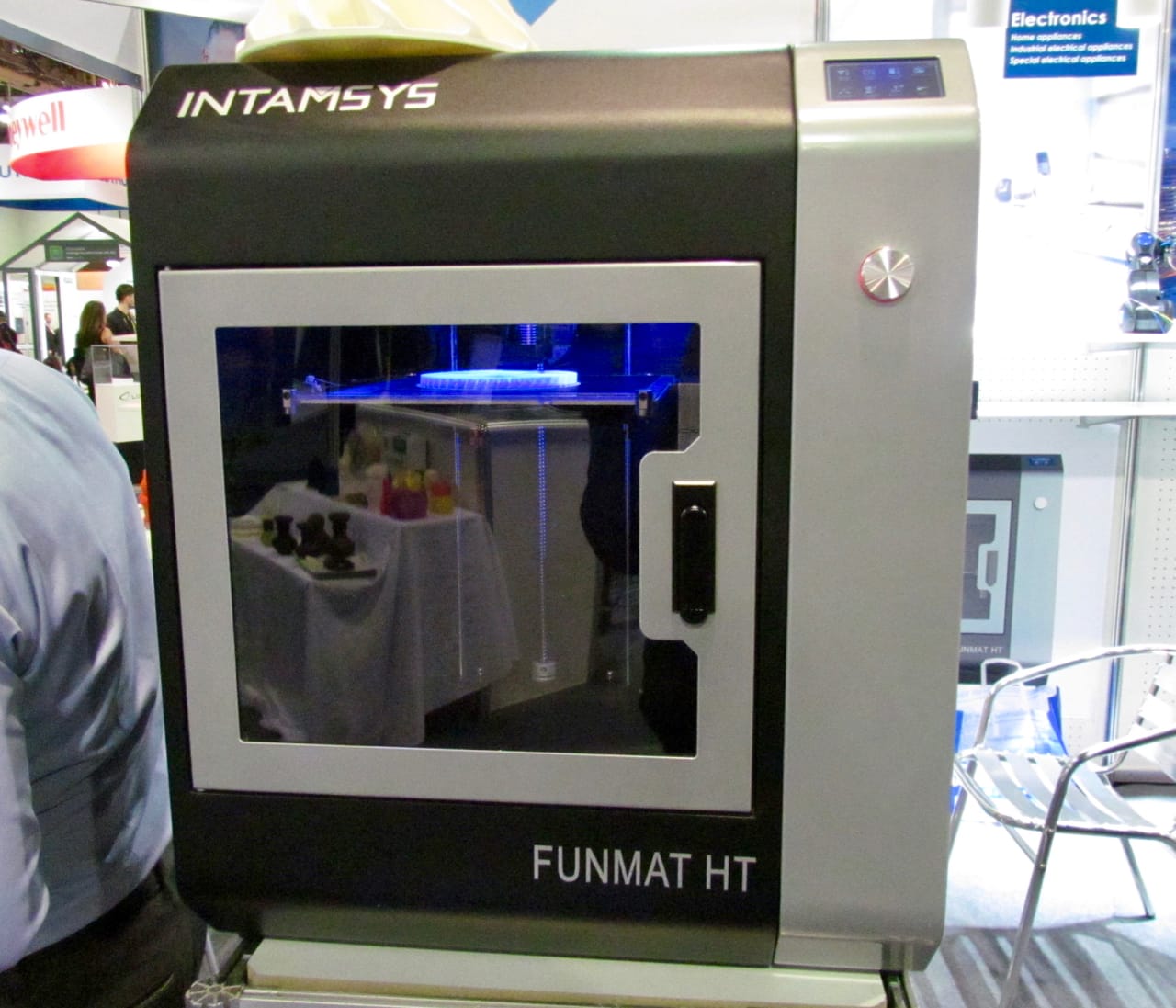
Shanghai-based INTAMSYS produces several 3D printers, but one of particular interest is the FUNMAT HT 3D printer.
Why is it of interest? It’s those two letters, H and T, standing for High Temperature.
The company has produced desktop 3D printing equipment for some time, marketing the FUNMAT 3D Printer, an all-enclosed unit employing the plastic extrusion process. The value of the enclosure is to dramatically increase the print reliability through precise temperature control.
The FUNMAT HT 3D prints all the usual materials, such as ABS, PLA, PETG and composite materials, but its key feature is high temperature extrusion. The FUNMAT HT’s hot end is made exclusively from metals, meaning it is designed to operate in a high temperature environment.
The hot end can hit as much as 450C, enabling this unit to successfully 3D print a number of exotic (for 3D printing) engineering materials.
These materials can include PEEK ULTEM, Polycarbonate and others, making the FUNMAT HT one of the few 3D printers available today that can print those unusual material in its 90C build chamber.
What’s most interesting is the price point for this capability: It can be obtained for as little as USD$5,400, slightly more than other advanced desktop 3D printers – and vastly less than existing traditional 3D printers may cost.
The importance of this price is that it should permit desktop access to exotic 3D print materials by designers and engineers hoping to build functional prototypes that can withstand more realistic testing.
It makes little sense to 3D print a prototype in PLA, for example, if it would simply soften if placed in an environment higher than 60C, which is a relatively common thing to happen. With the FUNMAT HT, engineers can print parts that can withstand high operational heats in more realistic testing scenarios.
I’m hoping that machines like this catch on, as it could significantly improve turnaround times for designers who otherwise might have to wait their turn on the “big machine” that up to now might have been the only way for them to print in these materials.
Via INTAMSYS

